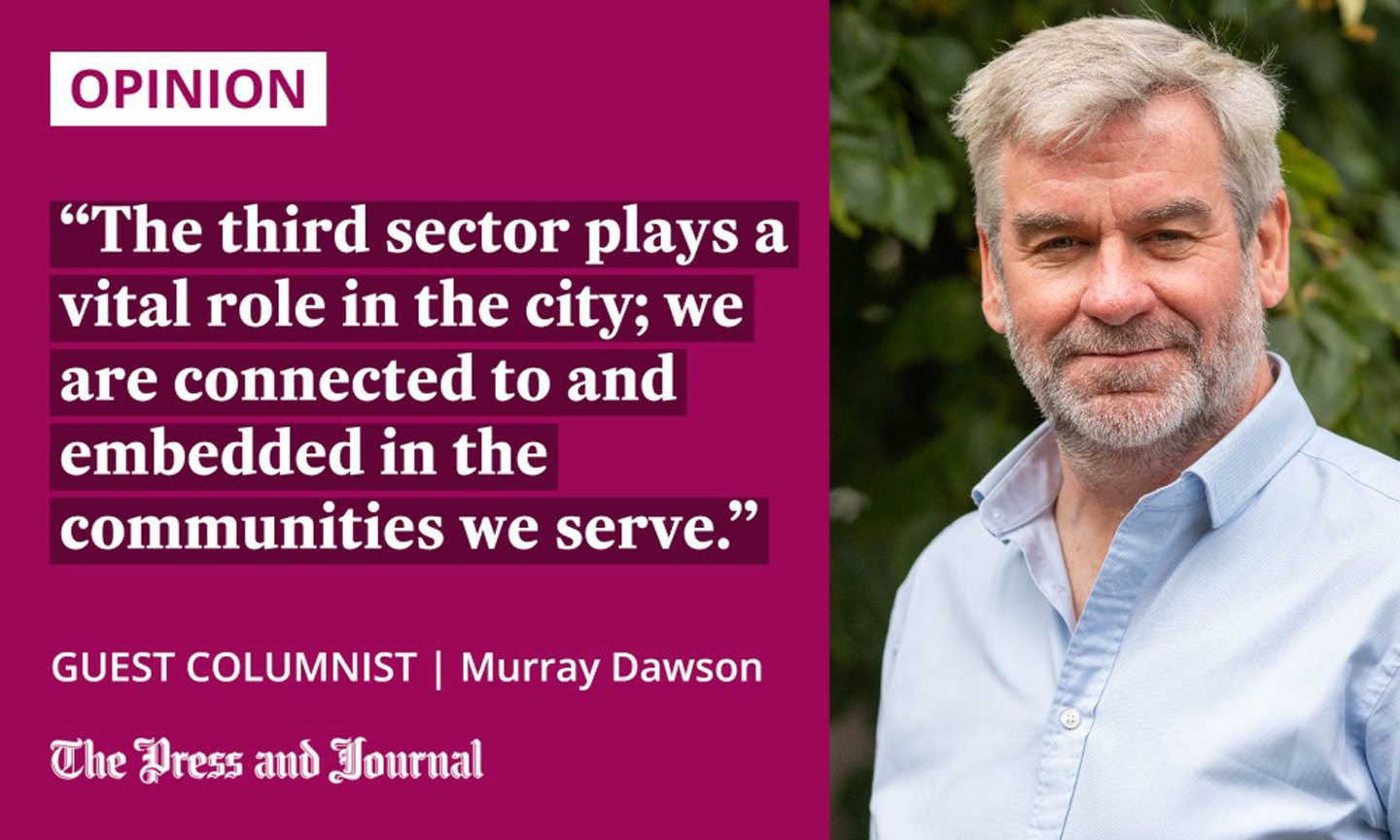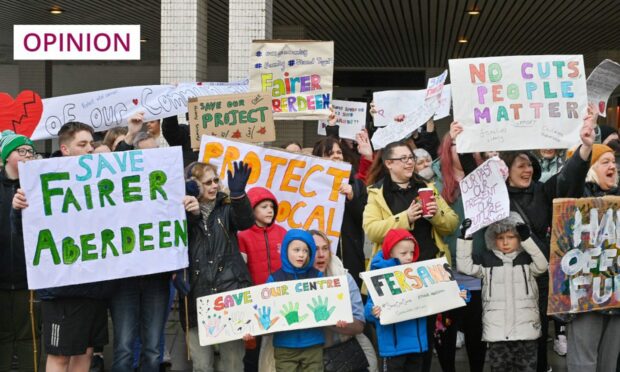The recent Aberdeen City Council budget crisis reiterated the central role charity, voluntary and community groups play in our society, writes Murray Dawson of shmu.
Against the backdrop of the escalating cost-of-living crisis – during which many people our organisation support have been faced with life-threatening decisions, such as having to choose between eating or heating their homes – we were delighted that Aberdeen City Council listened and did not go ahead with the proposed budget cut to the Fairer Aberdeen Fund.
The Fund supported 38 different third sector organisations last year which, in turn, supported over 35,000 people across the city. These cuts would have had a devastating impact, not only on our organisation, but across the third sector in Aberdeen. Many groups would have been forced to shut their doors, leaving thousands of vulnerable communities at risk.
The third sector plays a vital role in the city; we are connected to and embedded in the communities we serve. Unlike larger public sector organisations, we can be nimble, react quickly and respond to identified needs as they happen.

We are often the groups that people really trust and continue to return to because they feel safe and supported. It is paramount that the third sector can continue to provide this assistance, and signpost individuals, as required, to other services that can help mitigate the dire circumstances so many people currently find themselves in.
It has been my privilege for nearly three decades to support people from the regeneration areas of the city, helping them to develop their voice, create opportunities to develop skills, and to have confidence and pride in their abilities. Our community media outlets create platforms for underheard voices to be celebrated, and to tackle the dispassionate and disparaging negative stereotypes peddled by most in the mainstream media.
Our services across the region are in higher demand than ever before. These include adult, youth, employability and community services, alongside a range of accredited courses which, combined, deliver our key strategic aims to transform our communities and support individuals to realise their potential.
Funding crisis highlights central role of third sector
If the Fairer Aberdeen Fund had been axed, it would have meant no community radio, and no community magazines. It would have led to a significant reduction in our employability programmes, and our support for young people and adults who face personal challenges would also have been seriously impacted.
It would also have meant that the additional sources of revenue shmu receives through matched funding from supporters such as CashBack for Communities, the Investing in Communities Fund and Creative Scotland could have been at risk, jeopardising those programmes, too.
Reflecting on the last few weeks, the funding crisis has reiterated the central role our organisation plays in celebrating diverse voices, creating platforms that help build compassionate communities, and sharing our resources to help to raise awareness of the vital work that the third sector delivers across the city, through the Fairer Aberdeen Fund.
Against a hugely challenging backdrop, the sector pulled together with a collective voice to challenge the proposed cuts, sending out a positive message about the quality and diversity of services that are supported by the fund, and the impact that any reduction in these services would have.
Building on the success of our coordinated campaign against the cuts, we are keen to extend the offer of our resources to ensure we are shouting about the fantastic work that is taking place across Aberdeen to support those most in need. We are working alongside strategic leads at Aberdeen City Council, the Health and Social Care Partnership and third sector partners who have their ear to the ground on the issues they recognise as increasingly important.
At shmu, we can use our extensive resources, skills and experience in film, TV, radio, and magazines to play a pivotal role and help raise awareness of the incredible services available across the city. We are keen to build on this approach, doing our bit to support a more coordinated response to important issues.
Next year’s proposed cuts will be here before we know it
We are creating campaigns with our communities on issues that are important to them, such as raising awareness around mental health and wellbeing, and challenging poverty. We aim to create a legacy by continuing to hold hard-hitting conversations with policymakers to ensure that all voices and concerns are heard, respected, and responded to.
The flexible and innovative third sector – which adapts services and responds to needs as required – is more vital now than ever
Nobody envies the position that the council administration was in: weighing up what to cut or “save” as part of their annual budget-setting process. We understand that it is difficult to cut any service that has been identified as responding to real need within Aberdeen.
However, the flexible and innovative third sector – which adapts services and responds to needs as required – is more vital now than ever.
The survival of our organisations and the services they deliver depends on coordination and collaboration. As a sector, we need to seize the opportunity; next year’s budget-setting process will be here before we know it.
Murray Dawson is chief executive and founder of Station House Media Unit (shmu)


Conversation